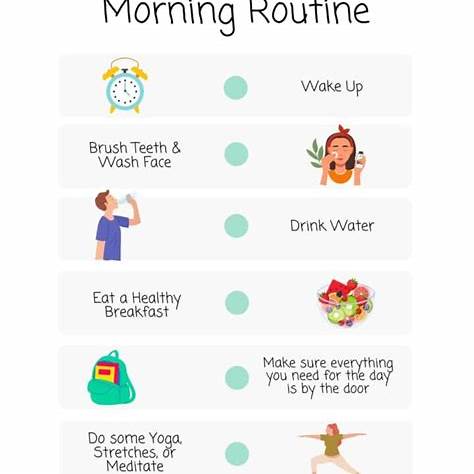Mornings can be particularly chaotic for families of children with ADHD—transitions, time pressure, and unexpected changes often lead to stress and resistance. But with a thoughtful approach, mornings can become smoother and more manageable.
Why Mornings Are Challenging
Children with ADHD may struggle with:
- Starting the day and shifting from sleep to activity
- Organizing tasks mentally
- Staying focused amidst distraction
- Feeling overwhelmed by haste and pressure
1. Prep the Night Before
Evening preparation is your secret weapon:
- Lay out clothes and shoes
- Pack backpacks and lunches
- Place important items by the door
- Use a kid-friendly checklist to make it engaging
2. Use a Visual Routine Chart
Post a picture-based morning flowchart in the child’s routine area:
- Wake up
- Brush teeth
- Eat breakfast
- Get dressed
- Grab backpack
This promotes independence and reduces verbal prompting.
3. Add a Gentle Wake-Up Buffer
Wake them 15–30 minutes earlier than needed. Use soft lighting, quiet music, calm cuddles—no abrupt alarms.
4. Time Tasks with Timers & Cues
- Use visual or auditory timers for each step
- Cue transitions with a short song or chime
- Give a 5-minute warning before transitions
5. Offer Limited Choices
Empower them while maintaining structure:
- “Brush teeth now or after breakfast?”
- “Red shirt or blue shirt today?”
6. Maintain a Calm, Distraction-Free Space
- Keep televisions and noise low
- Only have breakfast items out
- Eliminate multitasking to reduce overwhelm
7. Incorporate Breakfast Motivation
Fuel focus and mood with protein-based breakfast—eggs, yogurt, smoothies. Encourage hydration to start the day right.
8. Include Morning Rewards
Use sticker charts or special privileges (e.g. favorite song in the car) when the morning routine goes smoothly.
9. Build in Departure Buffer Time
Set expectations for a little extra time before leaving—this helps absorb minor delays without panic.
10. Model Confidence and Calm
Your tone and body language set the pace. Stay composed, supportive, and reassuring—your calm becomes their guide.
Final Thought
With the right routines—preparation, visual structure, calm transitions, and empowerment—mornings no longer have to be a battleground. Instead, they can become a predictable, peaceful start to the day, helping your child gain independence and confidence.
